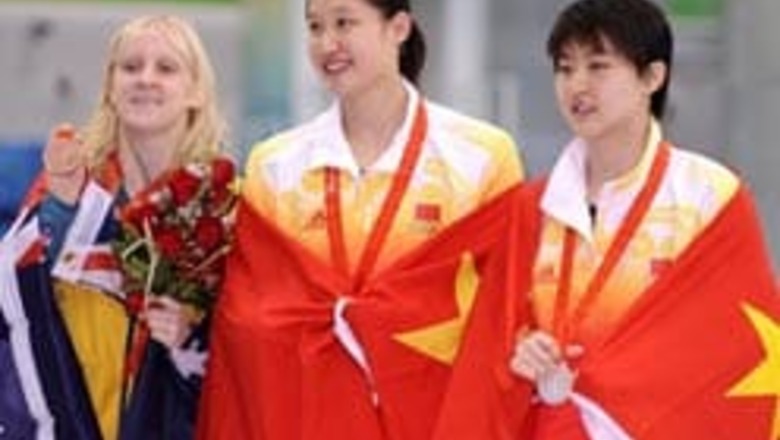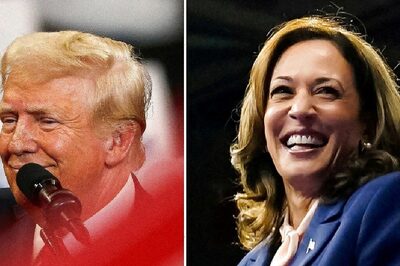
views
Beijing: A Chinese swimming coach on Friday dismissed suspicions of doping after unknowns Liu Zige and Jiao Liuyang produced stunning performances to take gold and silver in the women's 200m butterfly.
Liu on Thursday smashed the world record by 1.22 seconds to lead teammate Jiao in a one-two finish ahead of Jessicah Schipper of Australia, giving China their first swimming gold of the Beijing Games.
It was only the country's third gold since its prime at the 1992 Barcelona Olympics, when it won four.
Since then the squad has had to fight the stigma of doping scandals and managed just two titles in the following three Games -- one in 1996 and one in 2004.
In the world of international swimming competition, few had heard of Liu, 19, and Jiao, 17, but coach Pan Jiazhang insisted there was nothing untoward about their emergence.
"Look at how many times our swimmers have been tested, I assure you that this is a clean team," Pan was quoted as saying in the state-run China Daily.
"Why do they accuse us every time we are doing well? Why don't they look at those times when we are not good?"
The trainer of Polish swimmer Otylia Jedrzejczak, Pawel Slominski, branded the results as "not rational", in remarks made to Polish media who took the coach's comments as implying doping might have been involved.
Australia's head swim coach said it was a shame the spectre of doping arises whenever there is a great performance.
"Swimming on the whole is a clean sport," Alan Thompson told Australian media.
"People are looking for reasons (for record-breaking performances) other than the real reason -- swimmers are swimming really well and coaches are coaching really well."
Asked about China's strong showing, he replied: "I think they deserve the benefit of the doubt, and some accolades for their performance."
China's once-powerful swimming team sank to their worst performance in 15 years at last year's world championships, winning just one silver and one bronze medal as media questioned their sluggish performances.
But Pan said it was a strategy to pave the way for success in Beijing.
"We put our focus only on the Olympics," the coach told the newspaper.
"We've been improving fast and consistently in the last few years and I am very surprised by the achievements we've made."
He attributed the quick times to foreign coaches lecturing in China, the fact that some swimmers had been sent to train overseas, and the new Speedo LZR Racer swimsuit.
"First, I think the swimming suits helps," Pan said.
"Second, we are competing at home and our swimmers feel very comfortable. And also, just check out the crowd. They definitely help the swimmers a lot."
China has repeatedly insisted it has cleaned up its act after the 1994 world championships when Chinese swimmers performed beyond expectations amid widespread suspicions of doping.
Later that year seven swimmers tested positive for steroids at the 1994 Asian Games in Hiroshima, which left the squad so decimated that China won only one swimming gold at the 1996 Atlanta Olympics.
The decline was only temporary and by 1998 China's women were back at the top -- until four more positive tests and the discovery of Human Growth Hormone in a swimmer's luggage at that year's world championships in Perth.
Former head coach Zhou Ming, who oversaw the worst period of China's doping history, was banned for eight years after the 1998 scandal.
Ahead of the Beijing Games, backstroke swimmer Ouyang Kunpeng, expected to contend for a podium here, was banned for life after testing positive for a performance-enhancing substance in May.




















Comments
0 comment